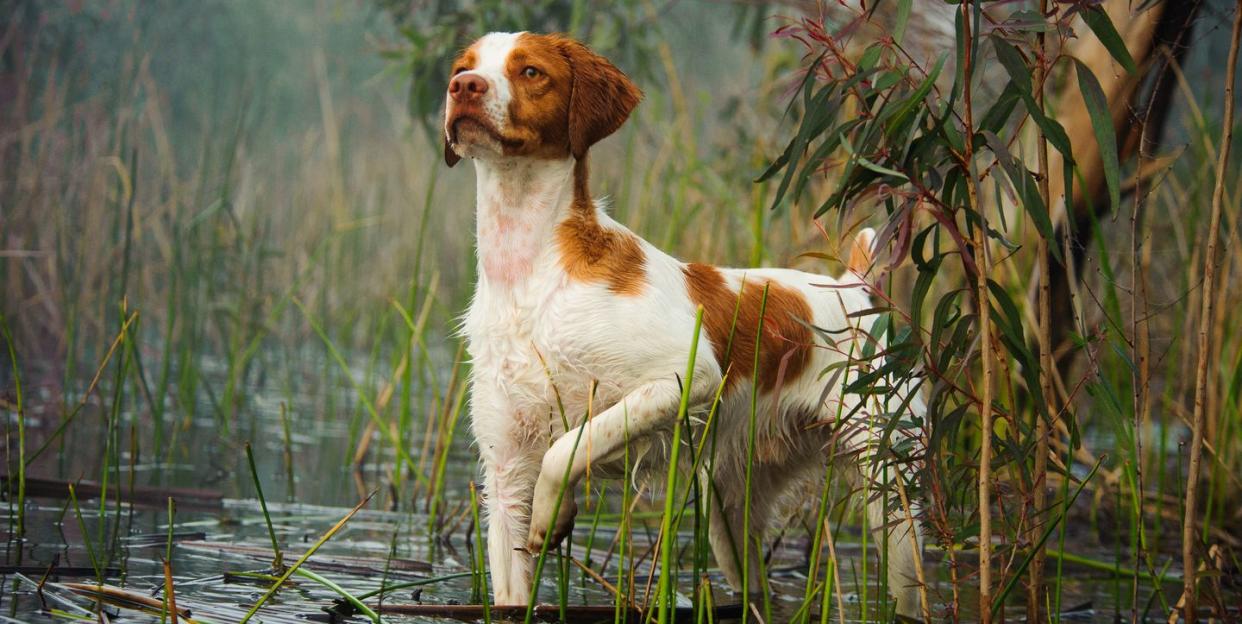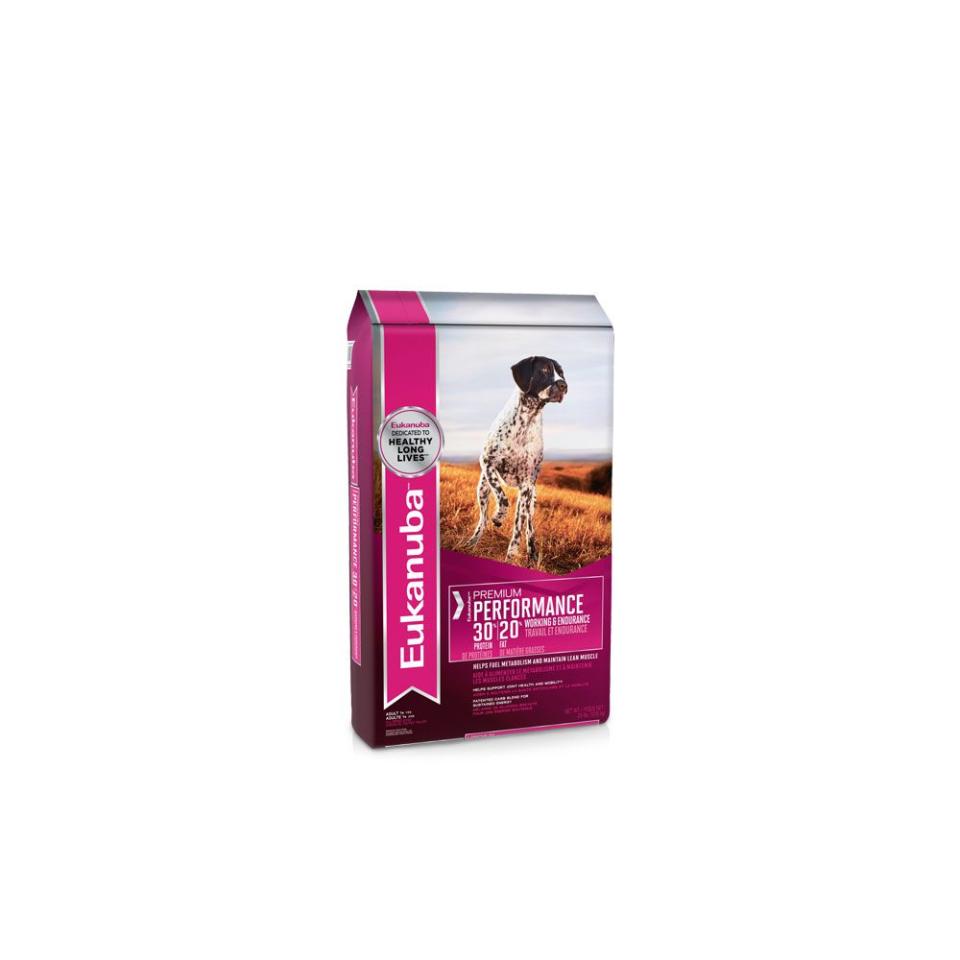Ask a Country Vet: How Can I Keep My Sporting Dog Healthy and Happy?

In each issue of Country Living's print magazine, animal expert Dr. Tricia Earley answers questions about pet safety, health, and happiness in Ask a Country Vet. To serve even more of our pet-loving readers, we're bringing the column online as well. In this installment, she shares tips on how to best care for active sporting and hunting dogs.
Q: What are some ways to keep my English setter Molly lean and in shape when she’s not hunting? - L.W, Erie, Pennsylvania
A: Don’t make the mistake of letting your sporting dog sit on the couch for 355 days of the year, and then expect them to be at top performance for the occasional hunting trip. This sort of sudden exercise lends itself to injury and overheating. Sporting dogs require daily exercise to stay in shape, lean, and energetic. Take Molly for daily walks or jogs, or let her run around in the park. Diet matters, too. When choosing treats, pick something that’s healthy and digestible, such as apples, bananas, blueberries, and carrots.
Q: Growing up I had a miniature poodle, but my husband just got a German shorthair pointer that he plans to take on hunting trips. Aside from larger portions, how should my new dog’s diet differ from the poodle I had as a kid? - L.W., Far Hills, New Jersey
A: The fat and protein requirements of a highly-active German shorthair pointer that regularly goes hunting differs from a quiet poodle that sleeps on the recliner most of the day. Here are a few things to look for in a wholesome food for your active dog.
Omega-6 and omega-3 fatty acids: These healthy fats boost the immune system, control inflammation, and help repair injuries.
Highly-digestible animal-based protein: Chicken, lamb, and fish are all great options.
Quick-digesting carbs: Things like rice and cornmeal cause blood sugar levels to rise, which is extremely helpful before strenuous activity. Your dog may get his initial energy boost from carbs and be able to sustain that energy when the calories from the fat kick in later in the day.
Glucosamine and chondroitin sulfate: Glucosamine is an amino sugar, and cartilage naturally contains chondroitin sulfate. Together, they help dogs produce fluid that can ward off joint pain and help repair damaged cartilage.
Country Living’s pick: Don’t feel like shopping around to find something that checks all these boxes? Eukanuba’s Premium Performance Dog Food for Sporting and Hunting Dogs fits the bill. It contains chicken, omega-3 and omega-6, a blend of carbohydrates, glucosamine, and chondroitin.

Q: It’s our first duck hunting season with Frank, our labrador retriever. What vaccinations does he need to stay safe and disease-free? - N.S., Baudette, Minnesota
A: There isn't one correct answer here. Talk to your veterinarian about appropriate vaccinations for your area. For example, the vaccination schedule for a bird dog in south Texas should include a rattlesnake vaccine, while a dog in the Northeast may place more emphasis on a Lyme vaccination. That said, if you're planning to travel out of your geographic region with Frank to go hunting, that's worth mentioning to your vet, too, so he has all his bases covered.
Have a question for our country vet? Drop up a line at countryvet@countryliving.com.
('You Might Also Like',)

